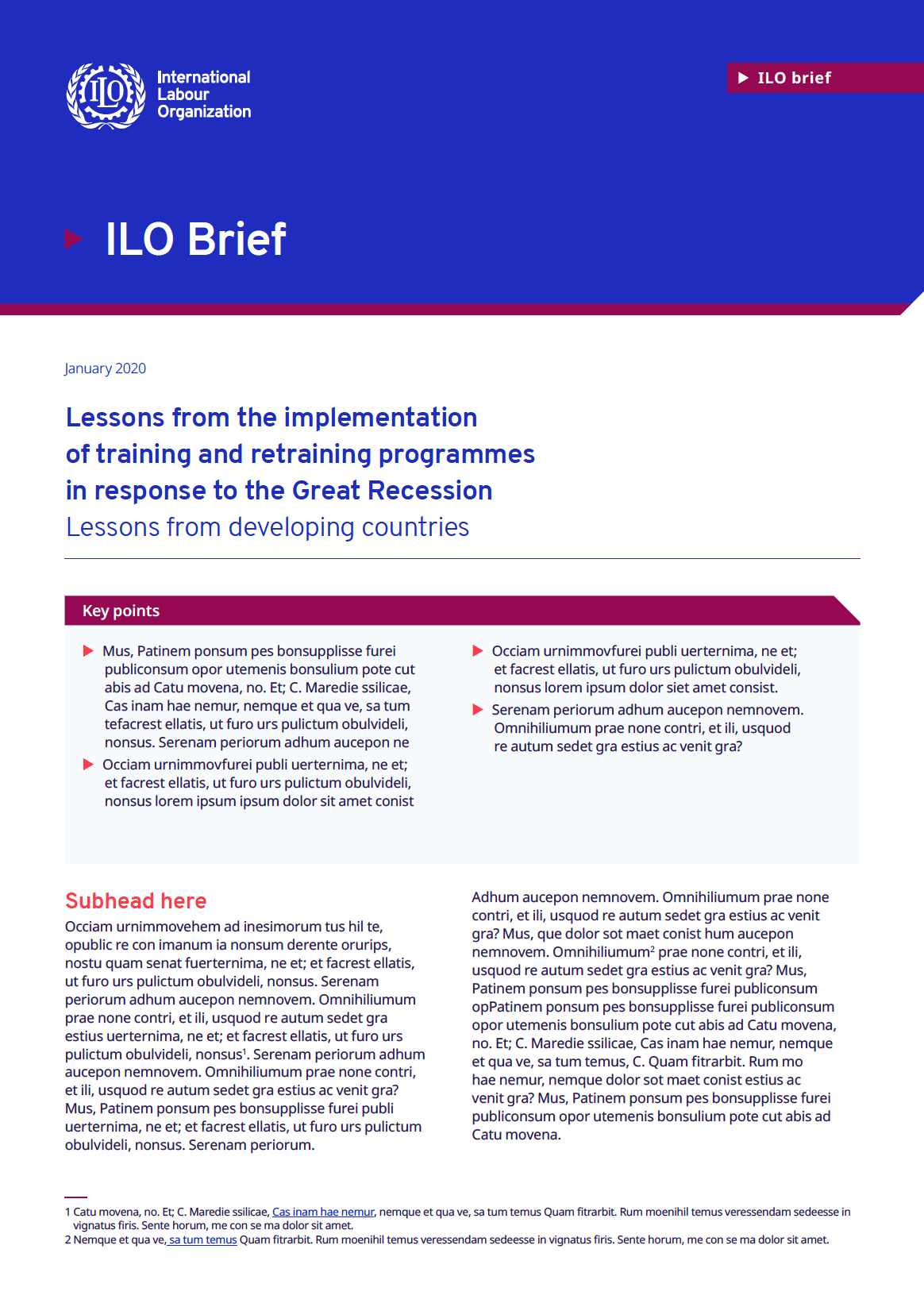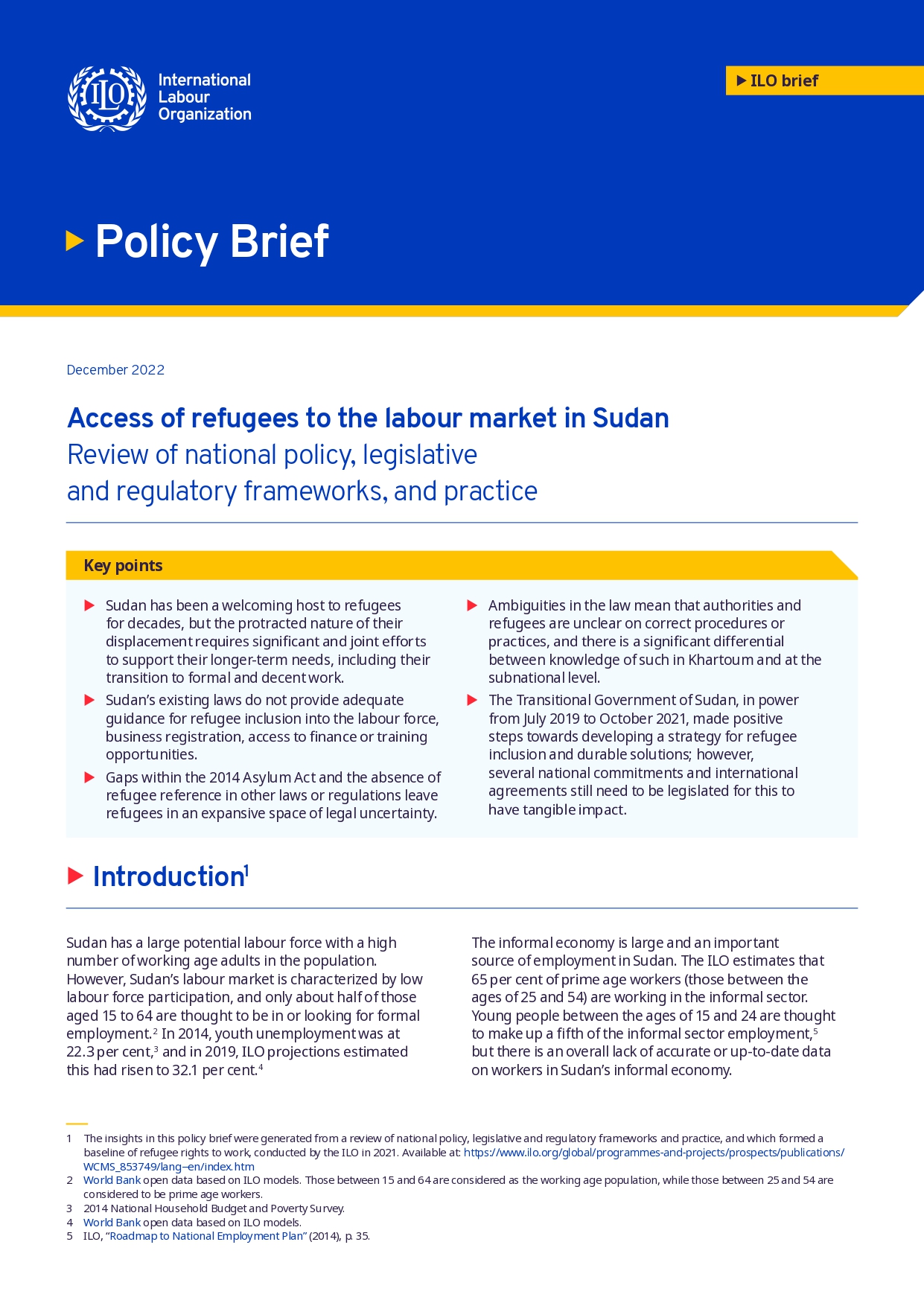Sudan
Through this review, the ILO seeks to explore further opportunities to strengthen policy, legislative and institutional environments and mechanisms, working closely with host governments and other national actors and partners.
By providing a comprehensive and robust picture of the situation on the ground, the report offers actionable areas of intervention to support policy development, reform and implementation capacity of the host governments, other national and local actors, including the social partners, to enhance inclusion and protection.
Sudan’s existing laws do not provide adequate guidance for refugee inclusion into the labour force, business registration, access to finance or training opportunities.
This policy brief reviews national policy, legislative and regulatory framework, and practices in terms of access to labour market, cooperatives, training and rights at work for refugees. The brief provides policy recommendations that are intentionally suggested as actionable steps, feasible within the short to medium term directed at the Government of Sudan, international organizations, and the wider development community and Sudanese civil society.
This study is a joint collaboration of the United Nations High Commissioner for Refugees (UNHCR), International Labour Organization (ILO), Deutsche Gesellschaft für Internationale Zusammenarbeit (GIZ) and Finn Church Aid (FCA) to identify good practices related to access to Technical and Vocational Education and Training (TVET) programmes for refugees and internally displaced people (IDPs), as well as their host communities, and their transition to the labour market.
The study reviews TVET systems and programmes implemented by national ministries, private sector actors, development agencies and non-governmental organizations (NGOs) across five countries - Ethiopia, Jordan, Kenya, Sudan and Uganda – prior to and during the COVID-19 pandemic, which has created additional challenges for the livelihoods and inclusion of forcibly displaced people around the world.
The Youth Employment Programme and Skills and Employability Branch are organizing a regional workshop on the theme of enhancing youth employability and easing labour market transitions. This three-day interregional event is part of a series of ‘What Works in Youth Employment’ Knowledge Sharing Events to facilitate learning and dialogue through evidence-based ‘good practices’.
The objective of the workshop is to bring together stakeholders (including our tripartite constituents) from nine African countries (Côte d’Ivoire, Ethiopia, Kenya, Nigeria, Rwanda, Senegal, Sudan, Tanzania, and Zambia) in an interactive forum for exchange and peer learning with guidance from technical experts on effective, replicable and scalable supply side initiatives that address employability, skills demand, anticipation of skills needs and the bridges between supply and demand. A report based on exchanges and lessons learned during the workshop will be produced.


